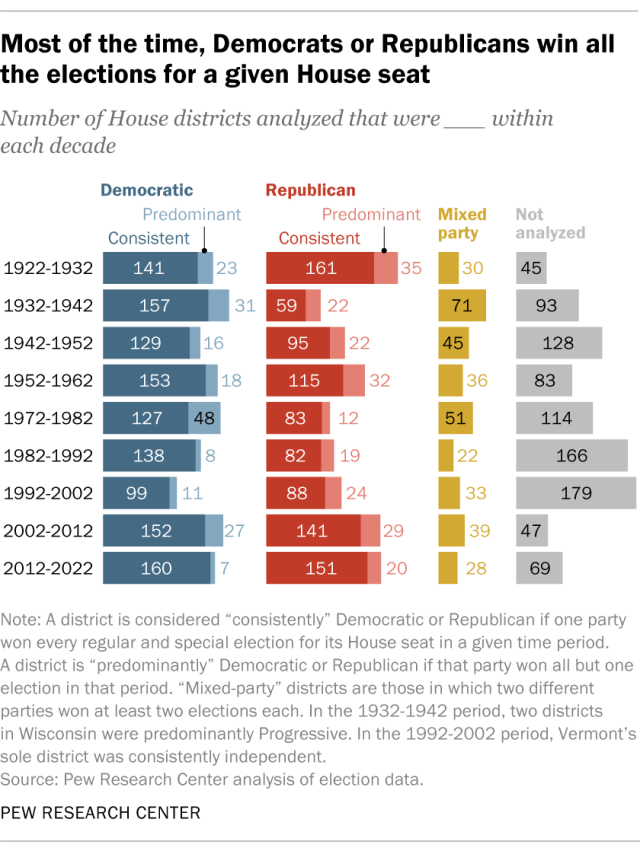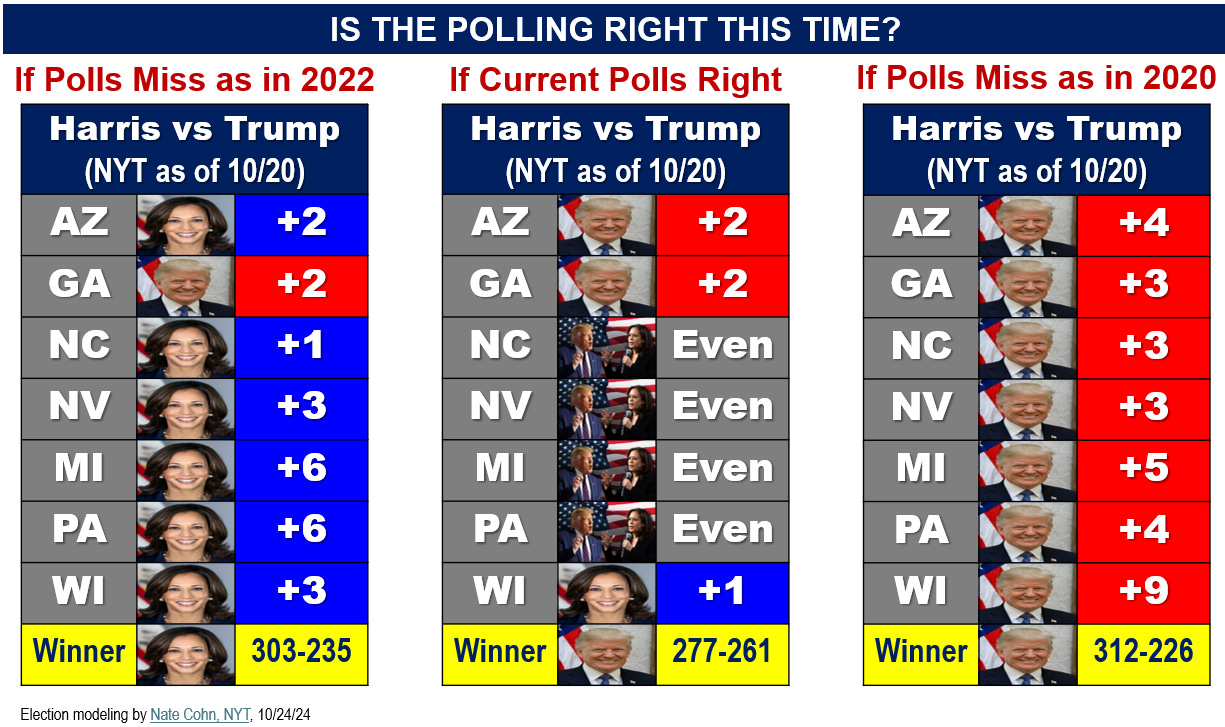The Republican Party currently has control of the U.S. House of Representatives, but it has an exceptionally narrow majority – 220 seats versus 212 for the Democrats, with three more seats vacant. That means Democrats need a net gain of just six seats in November’s elections to take control.
That might not seem like a tall order, but in any given election, the vast majority of House districts are won by the party that already holds them. In 2020, for instance, 93% of districts were retained by the same party; only 18 of 435 districts (4%) flipped.
How we did this
Has it always been this way? Or was there a time when House districts weren’t firmly in the grip of one party or the other, election cycle after election cycle?
To find out, we examined the outcome of every House election – regularly scheduled ones as well as special elections to fill vacancies – from 1922 to 2020.
House districts are redrawn following each decennial census to reflect population changes, so districts aren’t directly comparable from one census period to another. With that in mind, we analyzed election results in 10-year segments. Each segment includes the five regular House elections held between census years, along with any special elections.
We found that in every 10-year segment, after adjusting for redistricting changes, most districts were consistently won by either Republicans or Democrats.

Our analysis begins with the decade following the 1920 census. Between the 1922 general election (for the 68th Congress) and a series of special elections in 1932 for the outgoing 72nd Congress:Republicans won every election in 161 House districts (41% of the districts we analyzed in this period) and all but one race in 35 more districts (9%).
Democrats ran the table in 141 districts (36%) and won all but one election in another 23 (6%).
Only in 30 districts

